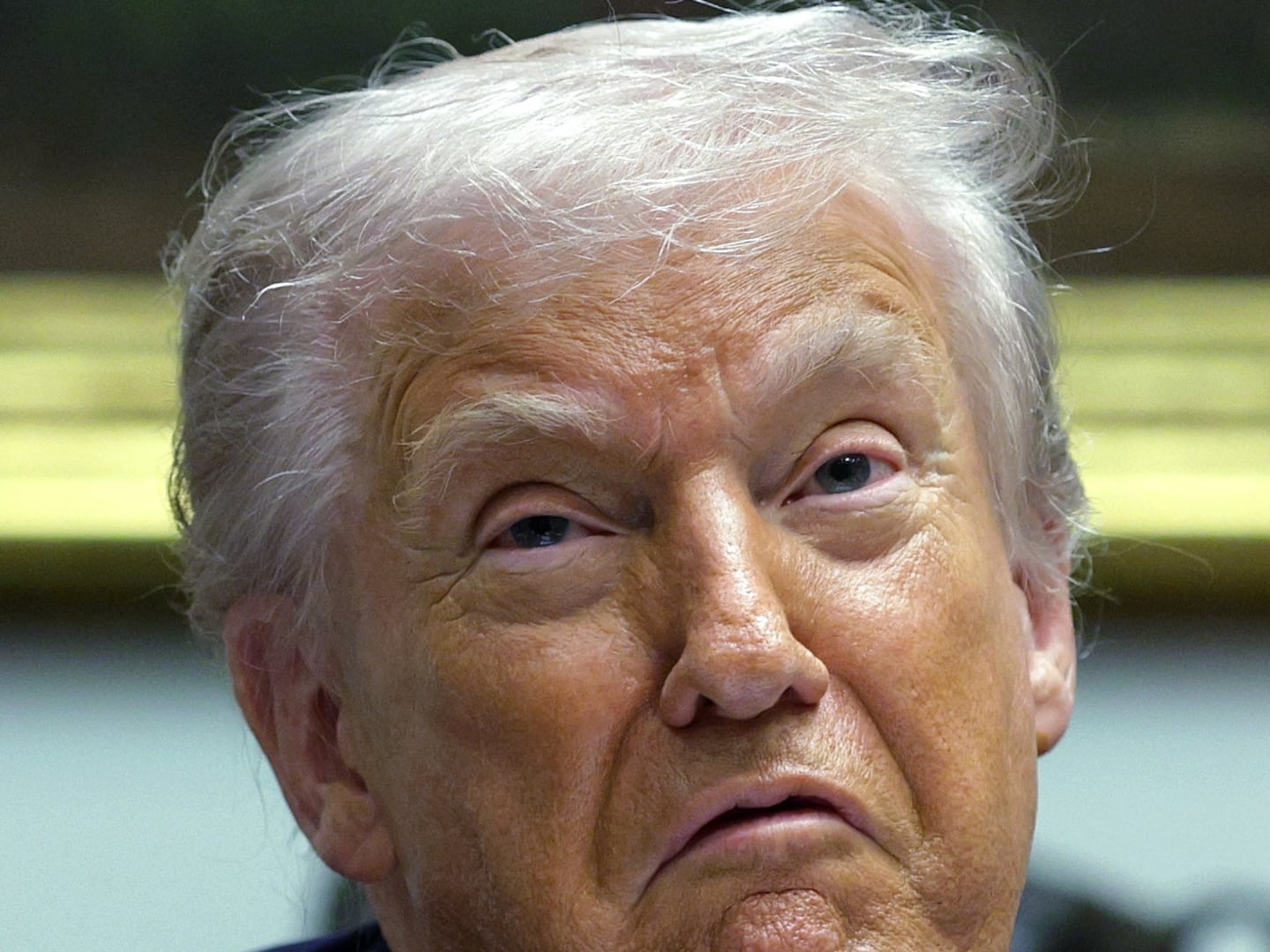A global selloff rocked stock markets Tuesday after President Donald Trump officially launched trade wars on Canada and Mexico and escalated economic jousting with China.
The Dow Jones Industrial Average fell 1.4 percent in Monday morning trading, while the S&P 500 shed 1.9 percent. The tech-heavy Nasdaq Composite tumbled 1.6 percent, putting it near correction territory, which represents a 10 percent decline from a recent high.
All three indexes turned in dismal performances a day earlier on Monday, after Trump confirmed his plan to slap 25 percent tariffs on goods imported from Canada and Mexico, and double an existing 10 percent tariff on goods from China.
Canada’s leading TSX Composite index fell 2.3 percent in early morning trading, while Mexico’s IPC index fell IPC percent.
Equities markets overseas were also dented by the president’s decision to tear up historic trade alliances with America’s closest neighbors.
Europe’s leading Stoxx 600 ended the day nearly 2 percent lower, with the blue chip indexes in Spain, Italy, and Germany also taking heavy losses.
Trump has threatened the European Union with 25 percent tariffs.
In Asia, Japan’s Nikkei fell 1.2 percent on Tuesday.
USB Global Wealth Management analysts said in a note on Monday that stocks are “likely to be volatile” until the Trump administration articulates how it intends to achieve economic growth.
Meanwhile, Bitcoin fell below $84,000 as any optimism about a strategic cryptocurrency reserve Trump announced over the weekend quickly evaporated.
During an appearance on Fox & Friends on Tuesday morning, Treasury Secretary Scott Bessent was asked by co-host Brian Kilmeade about “the market tank” that followed Trump’s promise of tariffs.
“I think over the medium term, which is what we’re focused on, it’s a focus on Main Street,” he said. “Wall Street’s done great, Wall Street can continue to do fine, but we have a focus on small business and consumers so we are going to rebalance the economy, we’re going to bring manufacturing jobs home.”
Kilmeade then asked Bessent if the tariffs would contribute to inflation—which has battered consumers in the years since the COVID pandemic snarled supply chains— and he did not directly address the question, instead saying “there’s going to be a transition period.”
Capital Economics' Paul Ashworth warned in an investment note that Trump’s tariffs on Canada, Mexico, and China could push personal consumption expenditures (PCE) inflation, the preferred inflation measure of the Federal Reserve, back toward 3 percent in the second half of 2025.
Core PCE rose 0.3 percent in January to a 2.6 percent annual pace, well off the Fed’s 2 percent target.
The Peterson Institute, a Washington, D.C.-based economics think tank, estimated last month that the tariffs will cost American households $1,200 per U.S. household per year, dubbing it effectively “the largest tax increase in at least a generation.”
In addition to the tariffs weighing on consumers and households, experts anticipate U.S. exporters will also bear the brunt of costs.
On Monday, Canadian officials laid out a list of tens of billions of dollars in ready-to-deploy retaliatory measures on Monday that will be rolled out over the next three weeks, impacting U.S. companies that sell north of the border.
Mexican President Claudia Sheinbaum said at a press conference Tuesday morning that there was no justification for Trump’s tariffs and that her administration will launch retaliatory tariff and non-tariff measures. China said Tuesday that it will ramp up tariffs on agricultural imports from the U.S., with 15 percent levies on chicken, wheat, corn, and cotton among new measures.
Meanwhile, economic data released on Tuesday by the Institute of Supply Management (ISM) revealed a dip in the manufacturing sector. ING economist James Knighley said the data revealed signs of potential tariff concerns among U.S. businesses and that there were worrying “huge drops in new orders and employment within the ISM report.”








